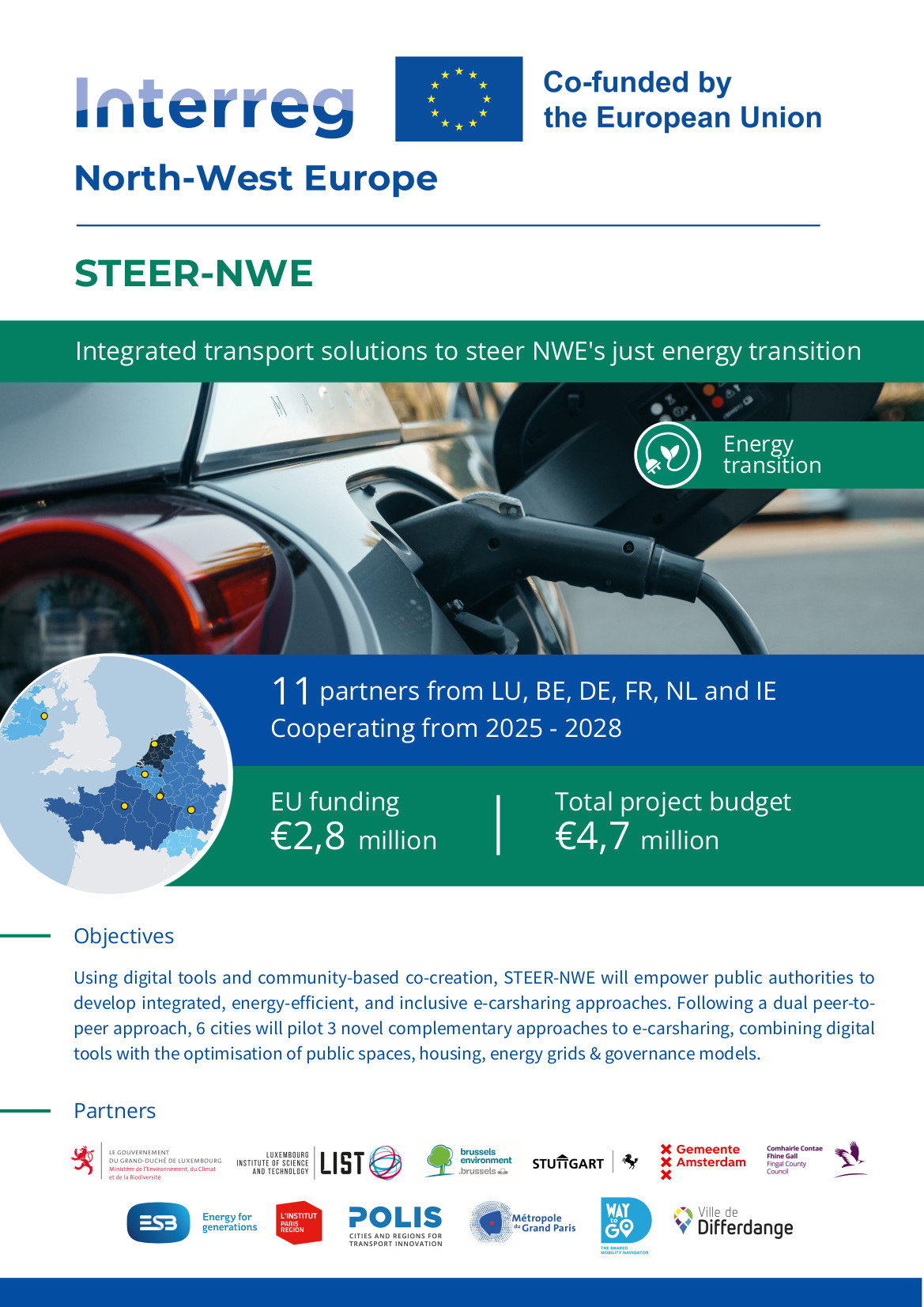In the pursuit for a fair energy transition, metropolitan across Northwest Europe (NWE) face a major challenge: the dominance of fossil-fuelled private car use has led the transport sector to become the largest energy consumer and major contributor to greenhouse gas (GHG) emissions. Low Emission Zones (LEZs) help reduce pollution, but often create conflicting interests between energy, housing, and transport policies. Against this background, electric carsharing emerges as an energy-efficient solution that supports and aligns with EU climate and environment goals. The STEER-NWE project aims to enable the upscaling of electric carsharing through a transnational and cross-departmental approach, focused on three thematic areas:
- Public Space Optimization & Housing Integration: integrating e-carsharing into housing developments, optimizing public space and reducing private vehicle ownership.
- Charging Infrastructure & Energy Incentives: expanding charging networks, promoting renewable energy use, and developing incentives like dynamic pricing and off-peak charging.
- Governance & Business Models: developing governance models and business strategies together with operators for scaling e-carsharing in LEZs/UVARs, ensuring inclusive access.
Supported by the use of digital tools and community input, STEER-NWE helps local governments create inclusive, energy-smart e-carsharing systems. The project brings together 11 partners (6 cities and 5 knowledge and dissemination partners) from 6 countries (Netherlands, France, Belgium, Ireland, Germany, and Luxembourg).


